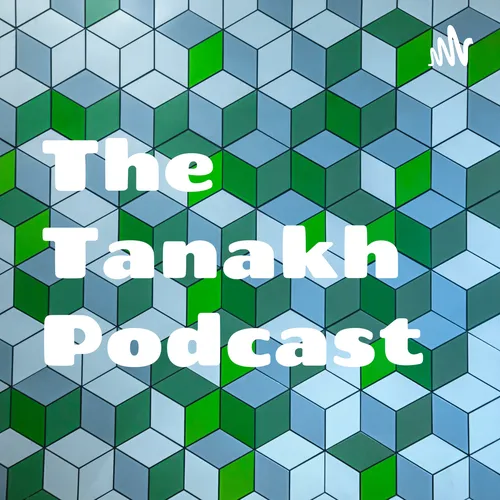
The Tanakh Podcast
Study Tanakh with Rav Alex Israel.
10 mins a day.
One chapter a day.
929 schedule.
- Update frequency
- every day
- Average duration
- 11 minutes
- Episodes
- 767
- Years Active
- 2022 - 2025

Esther ch.6 - Assassination Intrigue
Why can't the king fall asleep? What is he worrying about?
Why does Achashverosh want Mordechai to be paraded around Shushan?
Does he suspect Haman? Of what?
The tables are beginning to turn!

Esther ch.5 - Setting the Trap
Esther risks her life, approaching the king uninvited.
But what does she request? That the king (and Haman) attend a party! And then another party! What is Esther's plan?

Esther Ch.4 - The Transformation of Esther
The royal writ has been issued, the letters dispatched, and the Jews are decreed for annihilation.
Mordechai appeals to Esther for help, but she refuses.
What makes Esther shift from passsive to acti…

Esther Ch.3 - Mordechai vs. Haman: A Deadly Rivalry
In Chapter 3 Haman's rivalry with Haman leads to Haman's plot to annihilate the Jews

Esther ch.2 - A Cruel Beauty Contest
Who are Mordechai and Esther - Devout or Assimilated Jews?
Why is the "beauty contest" of Achashverosh quite possibly the cruelest way to find a wife?
And what de we learn from the Bigtan and Teresh st…

Esther ch.1 - Shushan is the Party!
Chapter 1 takes places several years before Esther comes to power, and way before the decree against the Jews.
Why is the story of Vashti relevant?
We offer three central lessons that we can take from …

Kohelet ch.12 - Fear God!
How does Kohelet end?
What is his conclusion?
Does he concluded with a soliloquy about death, or a series of statements about guidance and life?

Kohelet ch.11 - "Cast your bread upon the waters..."
Practice kindness, diversify your investments, invest in life - even if you cannot fully understand it, and enjoy your youth!
These are Kohelet's messages - a philosophy of humble pragmatism.

Kohelet ch.10 - Wisdom, Foolishness; and the Fly in the Ointment
One act of foolishness can sully a sterling reputation.

Kohelet ch.9 - White Clothes and the Love of a Woman
Death might be the great equalizer, but in the meantime, there are better ways to live and worse ways.

Kohelet ch.8: The Randomness of Power
How might we act in the face of temperamental but powerful figures of government?
How do we navigate an unpredictable world in which good and bad are seldom evident?
Do we just eat and drink and be hap…

Kohelet ch.7 - Better than...
The word "tov -good" is the keyword of our chapter.
Kohelet has been asking what the key to good is. In this chapter he offers a new pragmatic approach.

Kohelet ch.6 - The Wanderings of Desire
6:9: "Better what you can see than the wanderings of desire."
Today we address the attractions and fantasies that make us not only dissatisfied with our worldly blessings but also sap our ability and …

Kohelet ch.5 - Musings about Religion, Action and Speech
Is there a value in visiting the Temple?
Should an individual make a vow?
The opening lines of chapter 5 speak about religious ritual, the power of speech and the manner in which a person approaches Go…

Kohelet Ch.4 - Work, Competition and Companionship
This world can be tough. Kohelet suggests that many people might prefer never to have been born at all.
And yet, with a little financial modesty and less comparison, with some simple companionship, we…

Kohelet ch.3 - A Time and a Season
A time to give birth and a time to die; a time to plant and a time to uproot that which is planted... A time to love and a time to hate; a time for war and a time for peace.

Kohelet ch.2 - Wisdom, Pleasure & Work
Kohelet entertains three possibilities of what might make life meaningful: wisdom, pleasure and work.
But the ultimate litmus test will be the death of a person; does anything valuable endure after w…

Kohelet ch.1 - "Hevel!" - The Philosophy of the Absurd
What is the meaning of life? That is essentially the question that Kohelet seeks to address.
Who is Kohelet?
What does he mean when he says: "All the rivers flow into the sea but the sea is never full"…

Eikhah ch.5 - "Hashiveinu" - Take us back!
Rather than a lament, Chapter 5 is a prayer. It begins by asking God to remember us and our humiliation, and it ends with a ple asking God to "Take us Back!"

Eikhah ch.4 - Colours of Destruction
Chapter Four uses colours to depicts the suffering of the people on Jerusalem's streets.
v.1-11 speak of the siege and famine
v.12-20 speak of the bloodshed of Jerusalem and the loss of sovereignty and…